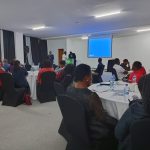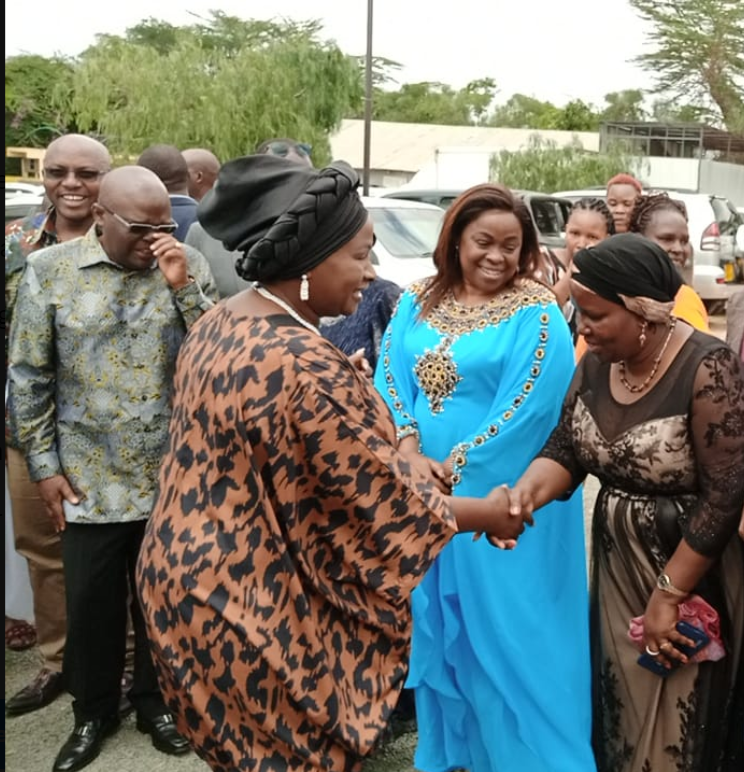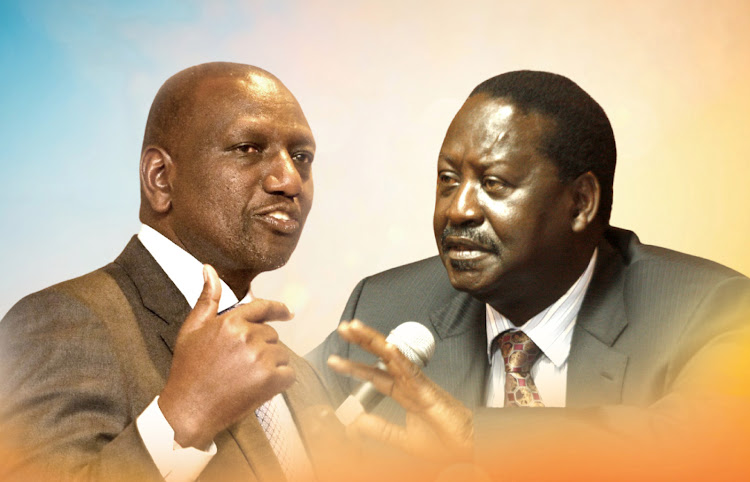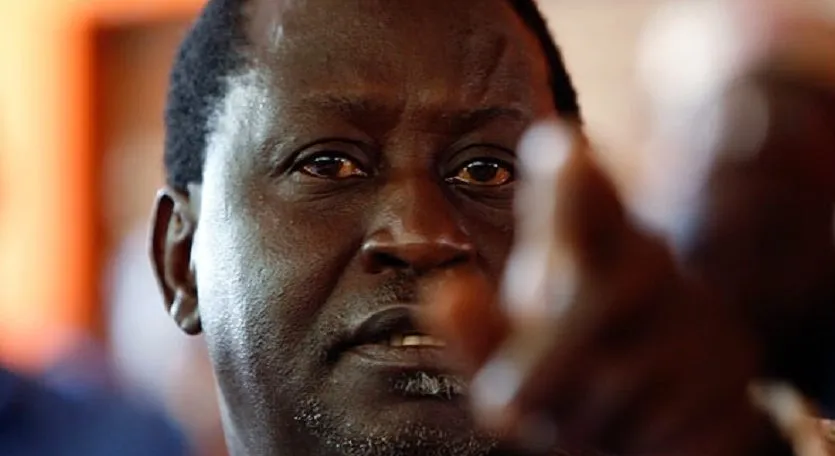[ad_1]
As Kenyans are keenly watching the ongoing interviews of Chief Justice applicants by the Judicial Service Commission, there is much that is going on behind the scenes in deals that will see the seat that was left vacant following the retirement of Justice David Maraga filled.

Nancy Gitau
Weekly Citizen has information, in an effort to win the support of Kenyan women, Uhuru Kenyatta handlers led by Jubilee strategists Nancy Gitau are pushing for Court of Appeal judge Martha Koome to be the next CJ and the president of Supreme Court. Within Office the President Winnie Guchu, who is chief administrative secretary and previously CAS State Law Office and Department of Justice, is the coordinator. While at State Law Office, Guchu was instrumental in the appointment of Olive Mugenda as a member of JSC. Mugenda is now the chairperson of JSC recruitment process.

Martha Koome
Mugenda to be incharge of the process met resistance from some quarters who wanted Deputy Chief Justice Lady Justice Philomena Mwilu to take charge. The matter even landed before the courts. By the time of going to press, five of the 10 applicants had been interviewed. They are Chitembwe Said Juma, Kameri Mbote, Patricia Gathiru, Martha Koome, Marete Njagi and Phillip Murgor. Those set to be interviewed this week are Mathews Nderi, Fred Ngatia, William Ouko, Moni Wekesa and Alice Yano. The commission consists of 11 members but the current one has nine.

Winnie Guchu
It is composed of the Chief Justice, who is the chairperson of the commission, one Supreme Court judge elected by the judges of the Supreme Court, one Court of Appeal judge elected by the judges of the Court of Appeal and one High Court judge and one magistrate, one a woman and one a man, selected by the members of the association of judges and magistrates. Others are the Attorney-General, two advocates, one a woman and one a man, each of whom has at least 15 years’ experience, elected by the members of the statutory body responsible for the professional regulation of advocates, one person nominated by the Public Service Commission; and one woman and one man to represent the public, not being lawyers, appointed by the president with the approval of the national assembly.

Olive Mugenda
The commissioners are Lady Justice Philomena Mwilu, Deputy Chief Justice and vice president of the Supreme Court, Justice Mohammed Warsame, Commissioner/Judge Court of Appeal, Mercy Deche, Commissioner/Advocate of the High Court of Kenya and Partrick Gichohi, Public Service Commission representative. Others are Mugenda; public representative, Kihara Kariuki, AG, Felix Kiptarus; public representative, Macharia Njeru for Law Society and Justice David Majanja, commissioner/judge of the High Court. The secretary of the commission is Anne Atieno Amadi – chief registrar of the judiciary.

Philomena Mwilu
What is now emerging is that there are three camps among the JSC members with each reading from different scripts. For now, the deep state that has Mugenda incharge has settled on Koome. Keen observers during Koome interview will agree, unlike other candidates, she was handled with velvet gloves. Those on the panel did not ask why in the four judgments Koome submitted in her application, all were in favour of the state. One such ruling was in favour of Jubilee and was done at night. The controversial ruling helped Jubilee grip to power. The ruling is said to have put Koome on collision course with Supreme Court judges who think if appointed, Koome will take orders from political elite. One man pushing for Koome openly is Njeru, the LSK representative on the panel.

Said Juma Chitembwe
When asking Koome questions, Njeru kept on asking her philosophy in judgment time and then. What Njeru failed to understand was, one cannot have dominant philosophy in judgments that are done in unison with other judges. Political class is worried, if Koome lands the plum slot as it is being lobbied, the future of independent judiciary is doomed. While being questioned how she would work with the executive that was at loggerheads with the judiciary during Maraga tenure, Koome answered she would make a phone call to the president. Pressed on the same, she said she would use other means to reach State House.

Kameri Mbote
On her relationship with Supreme Court judges if next CJ, Koome aware she does not get on well with majority claimed, she would use a mediator to organise lunch and establish a rapport. Sources say those pushing for Koome want to kill two birds with one stone. Have a first woman CJ and female lawyers and other women celebrate big. Two, remove Mwilu from her current deputy CJ position by sponsoring a tribunal to investigate her. Fight to remove Mwilu has been on for years but courts have been blocking them. Fear also has been, her removal would meet resistance on gender basis.

Njagi Marete
With Koome as CJ, Mwilu is vulnerable, so it is argued. In the arrangement, those pushing for Koome to please a certain political class want Court of Appeal judge Justice William Ouko headed to the Supreme Court to replace retired judge Jacktone Ojwang. They both come from Luo Nyanza. By last week, plot was on to have LSK recall Njeru. Others were planning to move to court to stop the recruitment process on grounds, suspicion has risen in the way wealth declarations were made by applicants. One camp deep state wants to isolate rotates around Justice Mwilu and Justice Warsame. The other consists of Ndeche, who is said to be an independentminded person together with Majanja, who are seen as neural.

Philip Murgor
However, there are other commissioners seen as sympathisers of the deep state. According to impeccable sources in the judiciary, they are AG Kariuki, Njeru, Gichohi, and Mugenda. It is not known where Kiptarus stands but he is leaning towards Mugenda camp. Justice Mwilu and Justice Warsame have a long history dating several years back and they are said to be the faces behind an attempt to block Mugenda from chairing the current recruitment panel. That vested interests are in the recruitment process is no secret. Forces had tried to protest over legality of some members. Judiciary chief registrar Amadi who doubles as the secretary to the commission said nothing bars the members from participating in the interviewing process in the search for a Chief Justice.

Mathews Nderi
Murgor had written a letter to the JSC seeking to have Justice Mwilu stopped from sitting in the interview panel. He had claimed that there might be bias and favouritism for some candidates seeking to succeed Maraga. Murgor had claimed that Mwilu’s professional relationship with an advocate who is among the candidates would be a conflict of interest. A petition by Samuel Gateri to the commission sought to have Mwilu declared the substantive chairperson of the commission, being the acting CJ as stipulated in the judicial service Act to block Mugenda. In his letter Gateri stated: “There may be a ploy by the commission to designate the interim vice chair Prof Mugenda to be the chair in absence of the Chief Justice.”

Fred Ngatia
However, Amadi noted that the interviews would be chaired by Mugenda. “The only thing that can stop a commissioner from participating is probably a court order or a commissioner’s choice not on the panel,” said the registrar. According to the constitution, the process of recruiting the Chief Justice is that the president shall appoint the Chief Justice and the Deputy Chief Justice, in accordance with the recommendation of the JSC, and subject to the approval of the national assembly.

Alice Yano
That each judge of a superior court shall be appointed from among persons who holds a law degree from a recognised university, or are advocates of the High Court of Kenya, or possess an equivalent qualification in a common-law jurisdiction; possess the experience required under clause (3) to (6) as applicable, irrespective of whether that experience was gained in Kenya or in another Commonwealth common-law jurisdiction; and have a high moral character, integrity and impartiality.

William Ouko
The Chief Justice and other judges of the Supreme Court shall be appointed from among persons who have at least 15 years experience as a superior court judge; or at least 15 years’ experience as a distinguished academic, judicial officer, legal practitioner or such experience in other relevant legal field; or held the qualifications specified in paragraphs (a) and (b) for a period amounting, in the aggregate, to 15 years. Each judge of the Court of Appeal shall be appointed from among persons who have at least 10 years’ experience as a superior court judge; or at least 10 years’ experience as a distinguished academic or legal practitioner or such experience in other relevant legal field; or held the qualifications mentioned in paragraphs (a) and (b) for a period amounting, in the aggregate, to 10 years.

Moni Wekesa
Each judge of the High Court shall be appointed from among persons who have at least 10 years’ experience as a superior court judge or professionally qualified magistrate; or at least 10 years’ experience as a distinguished academic or legal practitioner or such experience in other relevant legal field; or held the qualifications specified in paragraphs (a) and (b) for a period amounting, in the aggregate, to 10 years.
Source link


















